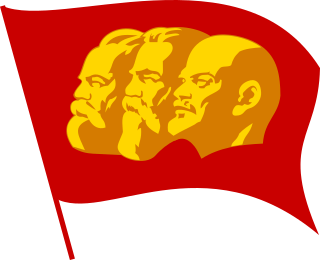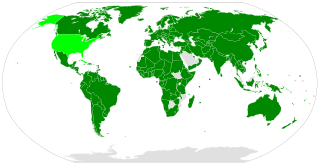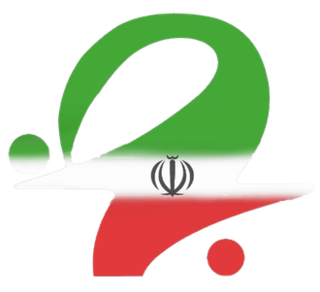Conservatism is a political and social philosophy promoting traditional social institutions in the context of culture and civilization. The central tenets of conservatism include tradition, human imperfection, organic solidarity, hierarchy, authority, and property rights. Conservatives seek to preserve a range of institutions such as monarchy, religion, parliamentary government, and property rights, with the aim of emphasizing social stability and continuity. The more extreme elements—reactionaries—oppose modernism and seek a return to "the way things were".

In political science, Marxism–Leninism was the official state ideology of the Soviet Union (USSR), the political parties of the Communist International, and of contemporary Stalinist political parties. Combining Leninist political praxis and Marxist socio-economics, the purpose of Marxism–Leninism is the two-stage revolutionary development of a capitalist state into a socialist state, guided by the leadership of a vanguard party of professional revolutionaries from the working class and the proletariat. The socialist state is instituted and governed by way of the dictatorship of the proletariat, which determines policy with democratic centralism.
Socialism is a range of economic and social systems characterised by social ownership of the means of production and workers' self-management, as well as the political theories and movements associated with them. Social ownership can be public, collective or cooperative ownership, or citizen ownership of equity. There are many varieties of socialism and there is no single definition encapsulating all of them, with social ownership being the common element shared by its various forms.

The Social Democratic Party of Germany is a social-democratic political party in Germany.
The Swedish Social Democratic Party, contesting elections as the Arbetarepartiet–Socialdemokraterna and usually referred to just as the Social Democrats (Socialdemokraterna), is the oldest and largest political party in Sweden. The current party leader since 2012 is Stefan Löfven, who has also been Prime Minister of Sweden since 2014.
Social conservatism is the belief that society is built upon a fragile network of relationships which need to be upheld through duty, traditional values and established institutions. This can include moral issues. Social conservatism is generally skeptical of social change, and believes in maintaining the status quo concerning social issues such as family life, sexual relations, and patriotism.

The Third Way is a position akin to centrism that tries to reconcile right-wing and left-wing politics by advocating a varying synthesis of some centre-right economic and some centre-left social policies. The Third Way was created as a re-evaluation of political policies within various centre-left progressive movements in response to doubt regarding the economic viability of the state and the overuse of economic interventionist policies that had previously been popularized by Keynesianism, but at that time contrasted with the rise of popularity for economic liberalism and the New Right. The Third Way is promoted by social liberal movements and some social-democratic movements.
The social market economy, also called Rhine capitalism, is a socioeconomic model combining a free market capitalist economic system alongside social policies that establish both fair competition within the market and a welfare state. It is sometimes classified as a coordinated market economy. The social market economy was originally promoted and implemented in West Germany by the Christian Democratic Union (CDU) under Chancellor Konrad Adenauer in 1949. Its origins can be traced to the interwar Freiburg school of economic thought.
Social liberalism is a political ideology and a variety of liberalism that endorses a regulated free market economy and the expansion of civil and political rights. A social liberal government is expected to address economic and social issues such as poverty, health care and education in a liberal constituted state. It does so in allowing autonomy of the individual and products of the free market unrestricted access with the goal to increase wellbeing for all.

The International Covenant on Economic, Social and Cultural Rights (ICESCR) is a multilateral treaty adopted by the United Nations General Assembly on 16 December 1966 through GA. Resolution 2200A (XXI), and came in force from 3 January 1976. It commits its parties to work toward the granting of economic, social, and cultural rights (ESCR) to the Non-Self-Governing and Trust Territories and individuals, including labour rights and the right to health, the right to education, and the right to an adequate standard of living. As of September 2018, the Covenant has 169 parties. A further four countries, including the United States, have signed but not ratified the Covenant.
The Green Party of Iran is a Green political party dissident to Iran's Islamic Republic government.
Economic, social and cultural rights are socio-economic human rights, such as the right to education, right to housing, right to adequate standard of living, right to health, victims' rights and the right to science and culture. Economic, social and cultural rights are recognised and protected in international and regional human rights instruments. Member states have a legal obligation to respect, protect and fulfil economic, social and cultural rights and are expected to take "progressive action" towards their fulfilment.

The Executives of Construction of Iran Party is a reformist political party in Iran, founded by 16 members of the cabinet of the then President Akbar Hashemi Rafsanjani in 1996. The party is a member of Council for coordinating the Reforms Front.
Social democracy is a political, social and economic ideology that supports economic and social interventions to promote social justice within the framework of a liberal democratic polity and a capitalist economy. The protocols and norms used to accomplish this involve a commitment to representative and participatory democracy; measures for income redistribution and regulation of the economy in the general interest; and welfare state provisions. Social democracy thus aims to create the conditions for capitalism to lead to greater democratic, egalitarian and solidaristic outcomes. Due to longstanding governance by social democratic parties and their influence on socioeconomic policy development in the Nordic countries, in policy circles social democracy has become associated with the Nordic model in the latter part of the 20th century.

Moderation and Development Party is a political party in Iran. It is a pragmatic-centrist political party which held its first congress in 2002.

The Islamic Labor Party is a reformist party in Iran and splinter group to the trade union Worker House.
Progressivism is the support for or advocacy of improvement of society by reform. As a philosophy, it is based on the idea of progress, which asserts that advancements in science, technology, economic development and social organization are vital to the improvement of the human condition.
Reformism is a political doctrine advocating the reform of an existing system or institution instead of its abolition and replacement. Within the socialist movement, reformism is the view that gradual changes through existing institutions can eventually lead to fundamental changes in a society’s political and economic systems. Reformism as a political tendency and hypothesis of social change grew out of opposition to revolutionary socialism, which contends that revolutionary upheaval is a necessary precondition for the structural changes necessary to transform a capitalist system to a qualitatively different socialist economic system.
Moderate Socialists or simply Moderates Party, was a political party in Qajari Persia and one of the two major parties of the constitutional period alongside its parliamentary rival Social Democratic Party–Democrat Party.







